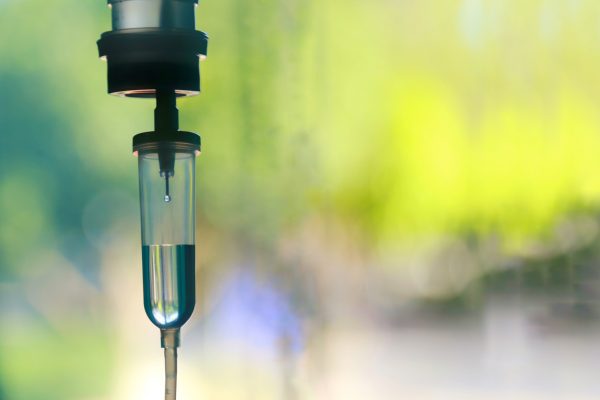
A bispecific CAR T-cell therapy, targeting both CD19 and CD20, shows efficacy in a small, cohort of patients with relapsed or refractory B-cell malignancies. Presented recently at the American Association for Cancer Research annual meeting, the study represents a potential breakthrough for patients who progress on CD19 CAR T-cell therapy. Athough efficacious, B-cell lymphoma patients who are treated CD19 CAR T-cell therapy typically relapse at a rate of 50% in the first 6 months, due to poor T-cell persistence or CD19 antigen escape. This first-in-human, phase I clinical trial enrolled 5 patients with detectable primary mediastinal B-cell lymphoma (N= 1) after 2 or more lines of therapy, and marginal cell lymphoma (N= 1) or follicular lymphoma (N= 3) after 3 or more lines of therapy. Patient’s T-cells were engineered to detect CD19/CD20 via lentiviral transduction. Following a lymphodepletion protocol, patients then received this bispecific CAR T-cell therapy at doses ranging from 5×107 to 2×108.
At a median follow-up of 11.1 months, 4 out of 5 patients had an ongoing complete remission. Median progression-free survival and overall survival was not met at the time of this analysis, and all 4 responders demonstrated T-cell persistence and B-cell aplasia. Furthermore, no dose limiting toxicities were observed. All patients had grade 1 cytokine release syndrome and no patients experienced immune effector cell-associated neurotoxicity syndrome. The one patient who did not respond had disease progression early, at day 14 post-infusion.
“One of the reasons CAR-T cell therapy can stop working in patients is because the cancer cells escape from therapy by losing the antigen CD19, which is what the CAR T cells are engineered to target,” says Sarah Larson, MD, principal investigator on the trial. “One way to keep the CAR T cells working is to have more than one antigen to target. So by ysing both CD19 and CD20, the thought is that it will be more effective and prevent the loss of the antigen, which is known as antigen escape, one of the most common mechanisms of resistance.”
Overall, this study was successful in demonstrating the potential efficacy of this treatment, and was able to determine a safe therapeutic dose. Moving forward, the study will enter a dose expansion phase, enrolling a larger cohort and diversifying eligible B-cell lymphoma subtypes.
Reference